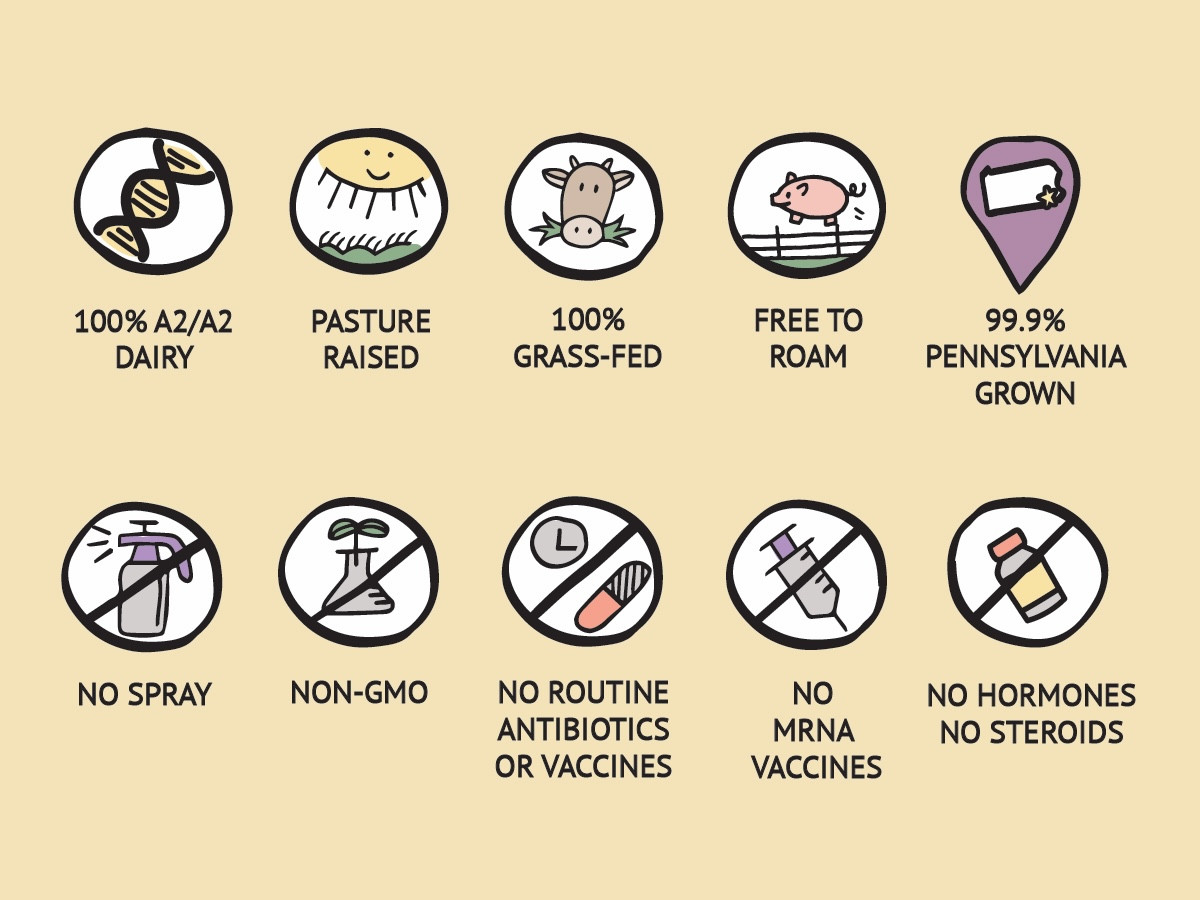No one has ever become poor by giving
posted on
April 19, 2019
The farmer launched a GoFundMe campaign last week to raise money for a bottling machine so he can lawfully bottle and sell raw milk in Pennsylvania. And, it was a big success! The farmer surpassed his $15,000 goal!
The farmer will use these funds to purchase a bottling machine, build a wall (which is also necessary for the bottling permit), and pay off some of his outstanding bills (of which there are many). Once his permits and licenses are in place, the farmer will be able to reopen his store to new customers (more on that in the coming weeks).
Once the fundraising goal was met, the farmer and I had a good conversation about suffering.
Choosing to be a farmer is, in many ways, choosing suffering. It is back breaking work making hay or moving chicken tractors. It is relentless. The cows need to be milked twice a day, every day, no matter what. And, it is unpredictable. One terrible storm can ruin an entire season, create bounties of extra work, and sink you into debt.
And why do farmers choose this suffering? Well, there’s probably lots of reasons. For our farmer, it was his calling. He wants to give back, because we need real food. He wants to regenerate the soil, provide nutrient-dense food for families, and treat animals respectfully. It’s not easy, but it’s necessary.
Suffering is unavoidable and needed. It is a part of life.
Everyone goes through periods of suffering - in their families, their jobs, their marriage, and their communities. It is human nature to persevere. Periods of suffering allow you to feel greater intensities of happiness.
After the long cold winter of hibernation, the spring blooms look magnificent.
When the farmer met the fundraising goal, he gave notice to his suffering. And he gave notice to the generous people that are supporting him. It is the collective goodness pushing him out of a period of suffering.
Sincere thanks to everyone who donated and shared the campaign. Many thanks go out to the Real Food Consumer Coalition, who helped the farmer immensely in the past few months. Also many thanks to the Pennsylvania Department of Agriculture and the USDA, who have also been very kind and helpful.
As Anne Frank wrote, “No one has ever become poor by giving.”
Human nature to help others is hope for the future. Thank you for hope.




